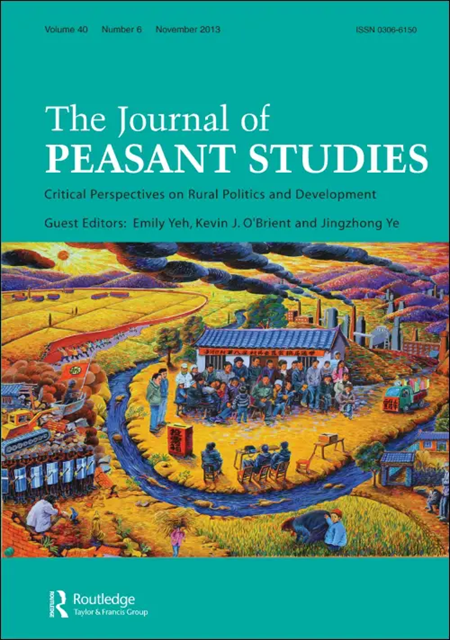原因与回应:人类世的脆弱性与气候
IF 4.8
1区 社会学
Q1 ANTHROPOLOGY
引用次数: 395
摘要
脆弱性的因果分析旨在确定危机的根本原因,以便找到变革性的解决办法。然而,大多数气候反应评估都缺乏根本原因分析。气候变化风险分析的框架往往将因果关系定位于灾害,同时将一些因果关系归因于贫困或缺乏能力等近似的社会变量。他们很少问为什么能力不足、资产不足或社会保护缺失或失效。这一贡献将脆弱性和安全定义为获得资产和社会保护的问题。资产和社会保障各有各自的情境-偶然因果链。在这些因果链中,一个关键的递归因素是弱势群体影响影响其资产和社会保护的政治经济的能力——手段和权力。正如森正确地观察到的那样,脆弱性与缺乏自由有关——影响塑造这些权利的政治经济的自由。在人类世,人类造成气候危害的原因现在也必须在灾害的病因学中加以考虑。然而,对人为气候变化的关注不应掩盖造成脆弱性的社会原因(以及对脆弱性的责任)——脆弱性仍然在社会中产生并由社会产生。本文章由计算机程序翻译,如有差异,请以英文原文为准。
Cause and response: vulnerability and climate in the Anthropocene
Causal analysis of vulnerability aims to identify root causes of crises so that transformative solutions might be found. Yet root-cause analysis is absent from most climate response assessments. Framings for climate-change risk analysis often locate causality in hazards while attributing some causal weight to proximate social variables such as poverty or lack of capacity. They rarely ask why capacity is lacking, assets are inadequate or social protections are absent or fail. This contribution frames vulnerability and security as matters of access to assets and social protections. Assets and social protections each have their own context-contingent causal chains. A key recursive element in those causal chains is the ability – means and powers – of vulnerable people to influence the political economy that shapes their assets and social protections. Vulnerability is, as Sen rightly observed, linked to the lack of freedom – the freedom to influence the political economy that shapes these entitlements. In the Anthropocene, human causes of climate hazard must also now be accounted for in etiologies of disaster. However, attention to anthropogenic climate change should not occlude social causes of (and responsibility for) vulnerability – vulnerability is still produced in and by society.
求助全文
通过发布文献求助,成功后即可免费获取论文全文。
去求助
来源期刊

Journal of Peasant Studies
Multiple-
CiteScore
10.50
自引率
17.60%
发文量
99
期刊介绍:
A leading journal in the field of rural politics and development, The Journal of Peasant Studies (JPS) provokes and promotes critical thinking about social structures, institutions, actors and processes of change in and in relation to the rural world. It fosters inquiry into how agrarian power relations between classes and other social groups are created, understood, contested and transformed. JPS pays special attention to questions of ‘agency’ of marginalized groups in agrarian societies, particularly their autonomy and capacity to interpret – and change – their conditions.
 求助内容:
求助内容: 应助结果提醒方式:
应助结果提醒方式:


